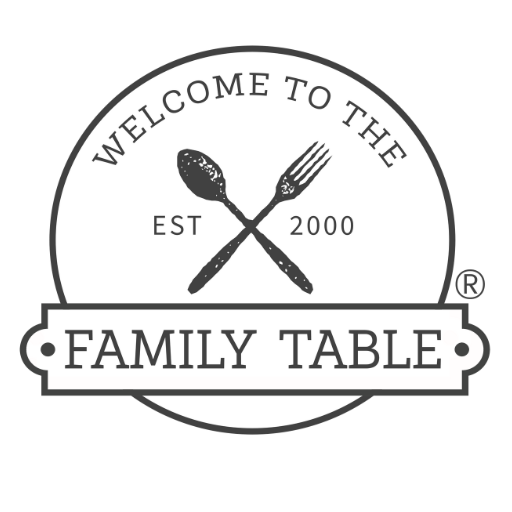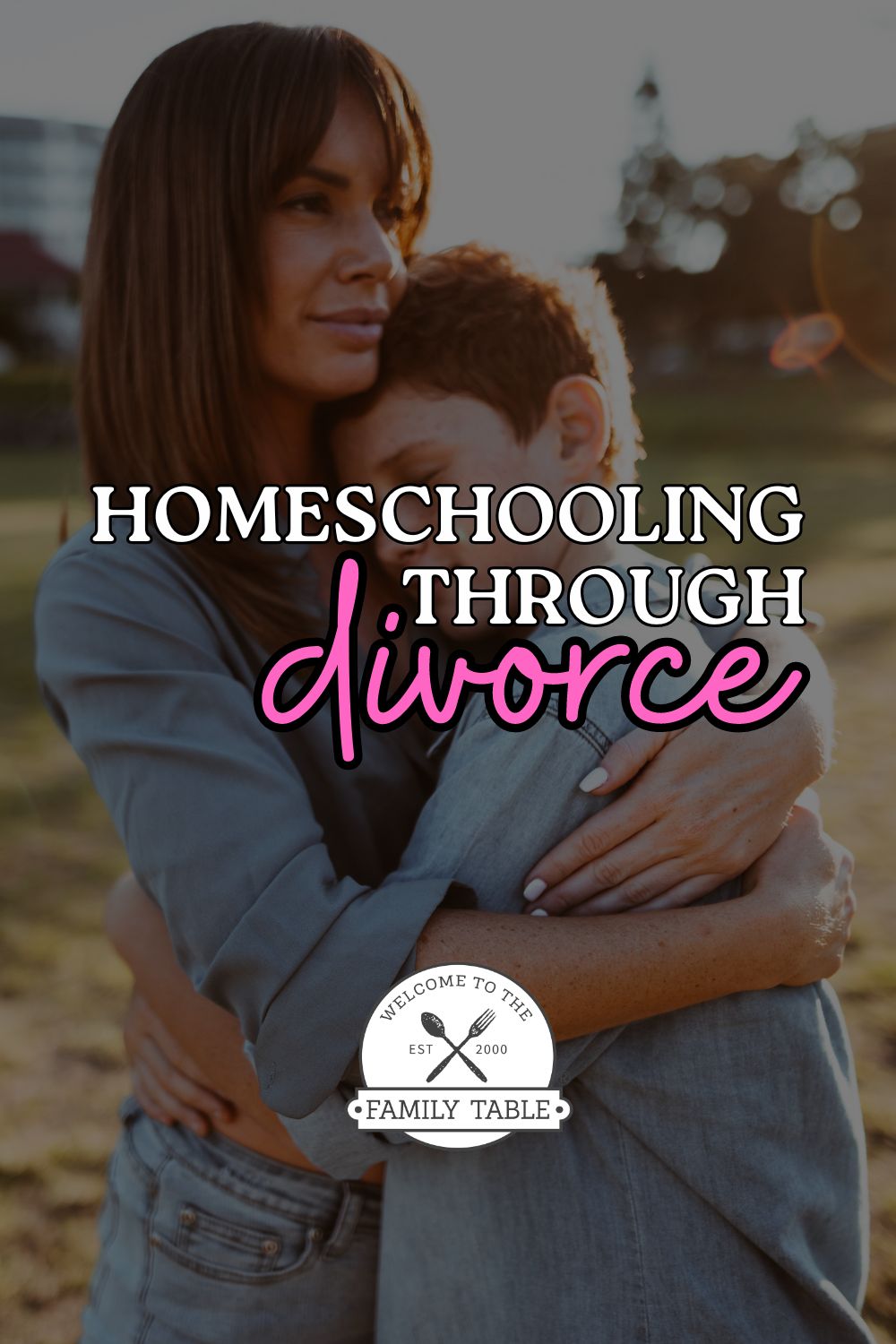Finding Your Homeschooling Path
Four years ago I took my two school-aged children from public school and began homeschooling. We signed up under a state charter school, and I had romanticized my role as my children’s educator. I had wall calendars, alphabets, space posters, and presidential bios posted on our walls. It was my first day homeschooling and it took exactly one hour to realize this was not matching what I had envisioned. Eight hours later, the night ended with a to-do list and nothing crossed off as I sobbed to my husband over some frozen pizza. I felt like a failure.
I was so wrapped up in what I wanted for my children, that my romanticized vision and academic hopes of early graduations were more important than what my children actually wanted or needed. I would like to say Red Baron pizza brought me clarity and perspective and that day two was better, but it wasn’t. I continued to make schedules, jammed curriculum down my children’s throats, iron-fisted education upon them, and “coached” them through the work samples demanded by their charter school. The times we weren’t homeschooling I enjoyed immensely. I liked being around my children and we laughed a lot. However, as soon as I metaphorically placed my teacher hat on, it happened: I spoke, they didn’t listen; I yelled, they cowered; I learned, they tuned me out.
After a year-and-a-half of hating home educating my children and secretly wishing to send them to a brick-and-mortar school, I received some wise counsel to go out on my own and become a Private Satellite School (PSP). It was a scary thought, but I knew that if I continued to tread in this choppy water, my relationship with my children wouldn’t survive. The lady walking me through the PSP process advised me to de-school for a month by stopping all formal lessons to give my kids the chance to love learning again. I hesitated, not seeing the value, but I was burned out and agreed to try it for two weeks for sanity’s sake. During that time we explored nature, went to the library, played legos most of the day, and googled things the kids had questions about. The stress-free two weeks rushed by and I thought it was time for me to become a teacher again. I changed the classroom around and purchased a huge load of curriculum that made me smile as I imagined us learning with excitement and ease. Can you tell I struggle with reality and control?
Proverbs 16:9 says, “We can make our plans, but the LORD determines our steps.”
In my head and heart I was making plans, but life with six kids wasn’t allowing me to escape the reality of…life with six kids! I burned out quickly. My wonderful curriculum wasn’t getting done at the pace suggested in the manual. The head trip I had going of me writing on dry-erase boards and obedient children hanging on my every word was dashed by poopy diapers at inconvenient times and preschoolers who refused to nap. Once again my way had failed, while every other blogging homeschooling mama was living my dream. Failure.
Kneeling with my face down on the carpet of my bedroom floor, I began to bawl to the Lord, pleading for Him to determine my steps. In that moment, God replayed our two weeks of de-schooling. I loved that time, but didn’t believe it was a legitimate option for homeschooling. I mean, how would my kids succeed in life? (That’s an entire post of its own.) I know that God is a God of relationships and not rules, but it didn’t seem right to not do things the traditional way. Hesitantly, I gave it a try and dropped one formal subject at a time until all was gone but math and Bible. Now even math is gone and we have no Bible curriculum, just the Word of God itself and millions of life applications. God is blessing where we are in our educational journey with instructional and relational growth. I believe it’s because I’m looking to His way on how schooling should look for our family, not the romantic comedy I have on repeat in my mind. I’m finally trusting Him with their entire lives and not withholding the areas I think I can handle, because the truth is I can’t handle any of it on my own.
Here are my tips for finding your family’s homeschooling way:
1) Jesus is the way! Before you even type “homeschool methods” on Google, seek God’s direction for your family through prayer.
2) Keep it real! Nothing about our God is artificial or fabricated. Putting on pretenses for the sake of others or even ourselves does not allow others to see, or us to experience, the grace and mercy He is giving and extending in our lives.
3) Our God is creative! We are created uniquely by our God and just because my über relaxed approach is the direction God has taken my family, doesn’t make it yours, too. I am disorganized and have a tendency for laziness, not to mention I have six souls with similar traits vying for my time and attention. I can’t seem to make the classic approach work for us–it’s not who our family is. God respects his creation and again, thanks to His grace, gives individuals inventive options.
4) Get support! I have a dear friend who helps me to keep my head out of the clouds when a homeschooling catalog comes in the mail by kindly reminding me of my reality and personality.
5) Don’t be prideful! If you have selected a homeschooling style that’s not working for you and your kiddos–change it! No where, except in your own mind, does it say that you are committed to a particular approach or curriculum. Don’t allow fear of people perceiving you as a failure to keep you a prisoner to something that’s not healthy and beneficial to you and your children. Sell the curriculum or bless another family with it, but don’t allow those books that you and your children are beginning to hate, to keep you in bondage any longer.
6) Define yourself as a child of the King and not by your homeschooling method! I hesitate to call myself an unschooler, because according to some, I’m not. I once read an article about unschooling that made me feel that I didn’t belong in the unschooling classification, even though by most standards I would fit this definition. The author of the article, a founder in the unschooling movement, was so concerned about keeping the unschooling name pure with a list of rules and standards, that it rivaled eugenics. The point was proven, but at the cost of ostracizing others. Today’s society would have us believe we are what we do, and in doing that we form cliques, esteem ourselves as greater than others, and lose sight of who we truly are. We are sinners covered by the love and grace of Jesus. If we can remember that label, we will feel more freedom in our homeschooling style and will see our influence grow in our family and community.
7) God is in control! I’d like to think of myself as the controller of my children’s lives education, but I’m not. Again, another nugget of wisdom from Proverbs is found in 19:21, “You can make many plans, but the LORD’s purpose will prevail.” Whatever plans we make are never going to derail the outcome the Lord has for our children. His purpose in their lives supersedes our plans, and for that I’m truly grateful.






Thank you for this post. I just started homeschooling my daughter this year, in the 7th grade. I work full time, four days a week, outside the home, so we do a lot of nights and weekends. It is so important that we listen to God’s plan for our own families and not try to graft ourselves into what everyone else is doing.
I’m so glad this was encouraging, Barbie! The first year was very difficult for me as I tried to sort through my own expectations of what “school-at-home” would look like and my perceptions of what other families were doing behind their homeschool doors. However, it sounds like you have already recognized the beauty and uniqueness of being your own family. It’s so awesome that you are making His calling for your family work by throwing out a traditional schooling schedule and embracing the moments you have together to grow and learn. Blessings!
LOVE THIS! This is where we are at in our 2nd year of homeschooling ( we have 5 kids, so i got a chuckle out of your bio saying you ‘had your hands full’. Why do people say that??). This past semester I have been really praying and listening to what God wants our schooling to look like and it sounds so much like yours. I have a couple questions if you have time- 1. Is your schooling strictly interest led? Or do you ever introduce topics/subjects? 2. In what ways do you guys incorporate math? I know math is really all around us, but we still do 3 days of ‘regular math’ and 2 days of living math(plus all the other learning moments that happen organically). I would love to pick your brain about those things =) Thanks in advance!!
Jen, I’m grateful for your comment and even more so for your kind words! You are speaking my love language.
To answer your questions:
1. Is your schooling strictly interest led? Or do you ever introduce topics/subjects?
Considering my children’s view of the world and interests are relatively narrow, I do introduce subjects, but not like, “June will be the month of lady bugs”. It’s more organic. If I’m interested in something or if I think it’s something they might like, I bring it up. I can share a video, print out coloring sheets, look up or grab a book from the library, make a craft, or go someplace fun to spark the interest. I also try to wonder out loud, “I wonder how they make dry milk?” Most times the little ones will say, “I don’t know. We should look it up.” Or they might, invent a creative story about a cow who doesn’t get enough water. Dehydrated cows aren’t the reason, but how awesome that they would make that connection, right? Also, if they talk a lot about a topic I will try to get info on that subject. Once they are “done” and seem disinterested, we move on. That includes when they are done reading aloud, or writing something they are working on. We clean what we are working on up and move on, even if it’s mid-sentence. I might encourage them to finish by asking, “Would you like to finish that?” Learning isn’t a chore and there are plenty of things in their lives that I require them to do; so the “quitting-when-it’s-hard-just-makes-quitters” argument doesn’t hold water with me.
2. In what ways do you guys incorporate math?
Our formal math (if you can call it that) comes from games, whether it be board games or electronic. Our “life math” is used the majority of the time in stores and in the kitchen. When other opportunities to use math arise, I normally delegate the calculating task instead of doing it myself. I don’t think I’ve ever used those Algebra, Geometry, or Trig classes I took, in my entire adult life. Therefore, I’m not sweating my teenage son’s ignorance on the topic. He could look it up online, have an answer, and move on to the next step faster than I could recall any formula. (Gone are the days of yore when teachers told kids they needed to memorize the facts because they weren’t going to have a calculator in our pockets. Praise God for the cell phone!)
As for why people insist on being concerned with what’s in our hands? They really could care less about our hand baggage, it’s just the new PC way to say, “You’re crazy!” And right they are. Be blessed!
That was such a blessing to me, tank you! Needed that today!
Connie, I’m glad you found encouragement today to continue on His path for your family.